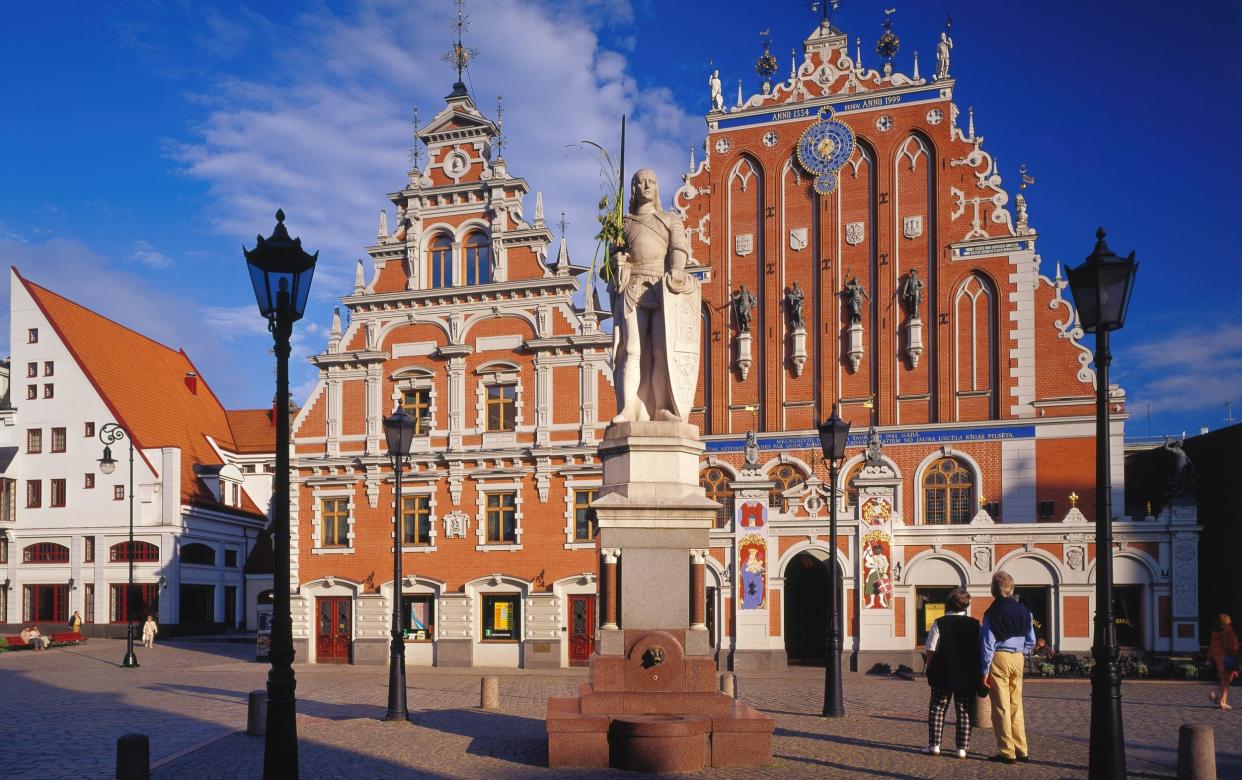Russians fleeing Vladimir Putin say they are not welcome in Latvia

With its snow-filled streets, overcast northern skies and bakeries selling small pies stuffed with cabbage, Riga should be a home from home for Russians fleeing Vladimir Putin.
But, instead, liberal-minded, tech-savvy and multilingual exiles are preparing to go elsewhere because of what they say is the Latvian government’s tough anti-Russian attitude.
“They are delaying our residents’ permits yet again. We are resigned to having to relocate once more,” said one Russian who preferred to remain anonymous.
He is the chief technical engineer of a startup company that aims to sell its niche product across Europe, the sort of business that Latvia’s government has previously said it wants to attract.
Invasion of Ukraine
He left Russia for Latvia in March, a couple of weeks after the Kremlin ordered an invasion of Ukraine. Initially it was a good fit, but not now.
“The interior ministry, which is in charge of security, pulls Russians in for these crazy interviews,” he said as he sipped on a pint of Guinness in one of Riga’s Old Town pubs. “They want to know whether I support Putin, whether I think Crimea should be Russian or Ukrainian, what the political affiliations of my family in Russia are.”
At the start of the war thousands of Russians crossed into the former Soviet Baltic states, with which they maintained strong business, cultural and family links since the collapse of the Soviet Union in 1991.
That included much of the country's non-state media, such as the BBC’s Russian language service, with 50 staff, and other Russian opposition media groups.
Concern about possible spies
These people were welcomed at first, but recently there appears to have been a shift in attitude, partly driven by the Baltic governments' fear of trouble-making Russian spies.
Latvia and the other Baltic States, staunch supporters of Ukraine, have stopped giving tourist visas to Russians and now even long-term investors and property owners are finding it difficult to renew residents’ permits.
The shift is now becoming entrenched. This week, the Latvian government ordered schools to offer only an EU language as a second foreign language after English by 2026, forcing them to drop Russian. Around one-third of the population of Latvia consider Russian to be their first language.
“This is an ideological plan that also aligns with EU priorities for more integration,” said Snorre Karkkonen Svensson, a Norwegian who has lived in Riga since the mid-1990s and now runs an NGO focused on language and society. “But at the same time, this is perceived negatively by part of the population. It says that we will not have this subject. We will not have Russian in our schools.”
Latvia’s interior ministry was unavailable for comment.
The rejection of young professionals and migrants looking to build a new life comes as Latvia’s dour financial situation worsens. Crushed first by anti-lockdown rules and then by the war in Ukraine, economists have said that Latvia will tip into a deep recession.
Inflation and recession
Officially, inflation is running at around 22 per cent, twice the UK rate. Anecdotally, though, it feels much higher and energy prices have soared by two or three times.
Empty shops scar many of Riga’s early-20th-century art nouveau streets. When darkness descends, proud pensioners slip out of their cold apartments into the dimly lit streets carrying small torches. They scavenge through bins, looking for discarded bottles that can be exchanged for a few cents.
But the discrimination is making people who might have been able to generate jobs look elsewhere for a home.
Daria, a Russian IT data analyst, left Russia prior to the war because anti-Putin street protests felt futile.
She has lived in Riga for three years and now speaks Latvian, but she feels she is being pushed out.
“My friends who started up a company in Latvia have closed it and moved to Germany,” she said. “I will leave too. I don’t want to stay in a place where the government is not happy to see me.”

 Yahoo Movies
Yahoo Movies 
